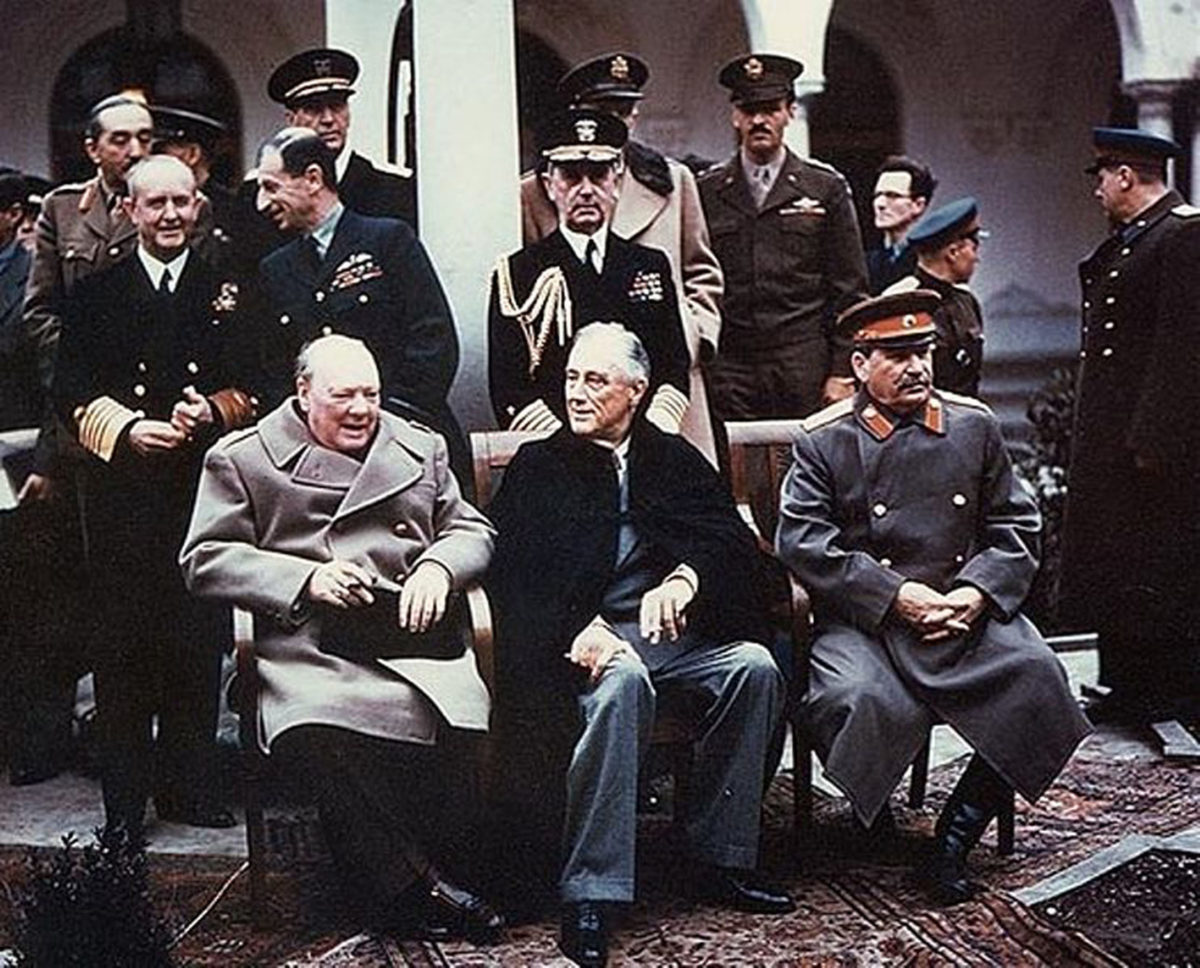THE AUGUST 23, 1939, signing of a nonaggression pact between the Soviet Union and Germany came as a thunderclap. The Nazi regime had been so vociferously hostile to communism that rapprochement between the nations and their ideologies scarcely seemed possible—and yet for decades historians have smoothly rationalized the agreement’s logic for both sides. But the Molotov-Ribbentrop Pact was not inevitable. Stalin could have decided that Hitler posed so great a threat both short and long term that he had to eschew a nonaggression pact with the Nazi dictator. In that event, the Soviet dictator most likely would have allied with Great Britain and France, two other great powers that had also been hard at work courting his favor.
Negotiations between the west and the Soviet Union were triggered by Hitler’s annexation of Czechoslovakia in March 1939, which violated the agreement made in Munich the preceding September and made clear that his next step almost certainly would be to invade Poland. In talks that started in earnest in April and continued through August, the British, French, and Soviets began with different starting points, but converged on an April 17 Soviet proposal. That arrangement posited a treaty of mutual assistance, binding all three to go to the aid of any states along the Soviet Union’s western border. The French more rapidly embraced this position than the British. If the British had shown as much alacrity, it would have increased the chance of the three powers formally aligning.
It also would have helped if the French and British had accepted a Soviet demand to reach a simultaneous military agreement along with the political agreement, another stipulation at which the British balked. Not until early August did the British nominate a military delegation, and only then did British and French representatives proceed by ship and train to Moscow, arriving August 11.
Stalin had affixed a very high price tag to an agreement. He wanted Soviet troops to have access into Romania and Poland, as well as the granting of security demands in the Baltic states of Lithuania, Latvia, and Estonia—in short, Anglo-French recognition of a Soviet sphere of influence from the Baltic to the Black Sea. The western powers were reluctantly prepared to accede, but the Poles refused to allow Soviet troops on their soil, on the conviction—well founded, as eventually demonstrated—that once the Soviets arrived they would be unlikely to leave.
Nonetheless, an Anglo-French Soviet alliance to protect Poland offered Poland its best chance of survival. The existence of an agreement to this effect might have led Polish leaders to reverse themselves and take the loathed step of allowing Soviet troops across their border. In that event, the tripartite alliance could have been in place by mid-August—or earlier, if the British had been quicker to accept Soviet terms.
What would Hitler have done in the face of an Anglo-French-Soviet alliance? He might have backed off, lest he trigger a two-front war. Hitler believed that he could defeat Poland well before the west ern powers could intervene, but could scarcely have entertained the same hope with regard to the Soviet Union. In his manifesto, Mein Kampf, the Nazi leader warned against the danger of fighting on two fronts. And, if anything, his generals feared that prospect more than he did. A secret resistance to Hitler among the men of the German High Command already existed. An alliance between the Soviet and western powers might have made Hitler’s foreign policy course seem so reckless as to spur that resistance into action.
It is also possible, as historian John K. Munholland suggests, that the sequel would have been another round of opportunistic diplomacy. The basis for an Anglo-French-Soviet alliance was, after all, tenuous. It had implications for the rest of Eastern Europe, and over time the Nazis might have concluded agreements offsetting or nullifying the Soviet alliance with the west.
But Hitler might have invaded Poland anyway. It was well known throughout Europe that Stalin’s military purges of the late 1930s had enormously damaged the Soviet armed forces. Hitler had contempt not only for the Soviet military but for its political leadership, and, countervailing alliance or no countervailing alliance, may well have pressed ahead with an attack on Poland, gambling that he could eliminate Poland before the Red Army could lumber into action and intervene effectively.
Some counterfactuals, once postulated, lead in obvious directions. This one does not. An Anglo-French-Soviet alliance might have achieved the desired effect of deterring Hitler from invading Poland. But an alliance also might merely have postponed that invasion while Hitler engaged in more of the diplomatic maneuvering that had characterized his foreign policy for years. Or a Soviet alliance with the Western Allies could have had scant effect, with Germany invading Poland on September 1, 1939, as occurred historically.
What then would have been the impact of an alliance between Stalin and the west? In many respects, Stalin would have gotten what he wanted: annexation of the Baltic states and an Eastern European sphere of influence. But although it is unlikely that he would have helped the Poles fend off the Germans, Stalin could have wound up holding onto an eastern strip of Polish territory.
The main difference—and this is vital—is that instead of a second front breaking open with the surprise attack of Operation Barbarossa in June 1941, war would have broken out between Germany and the Soviet Union in Sept ember 1939. The French army would have stood undefeated, Britain’s forces on the continent would have remained formidable, and, whatever their military shortcomings, the Soviets would have threatened Germany in a way that Hitler could not have ignored. In short, an Anglo-French-Soviet alliance might not have achieved its objective of deterring war. But the alliance would have forced Germany into a two-front conflict that would have played out very differently— to Germany’s disadvantage.
Originally published in the June 2013 issue of World War II. To subscribe, click here.





